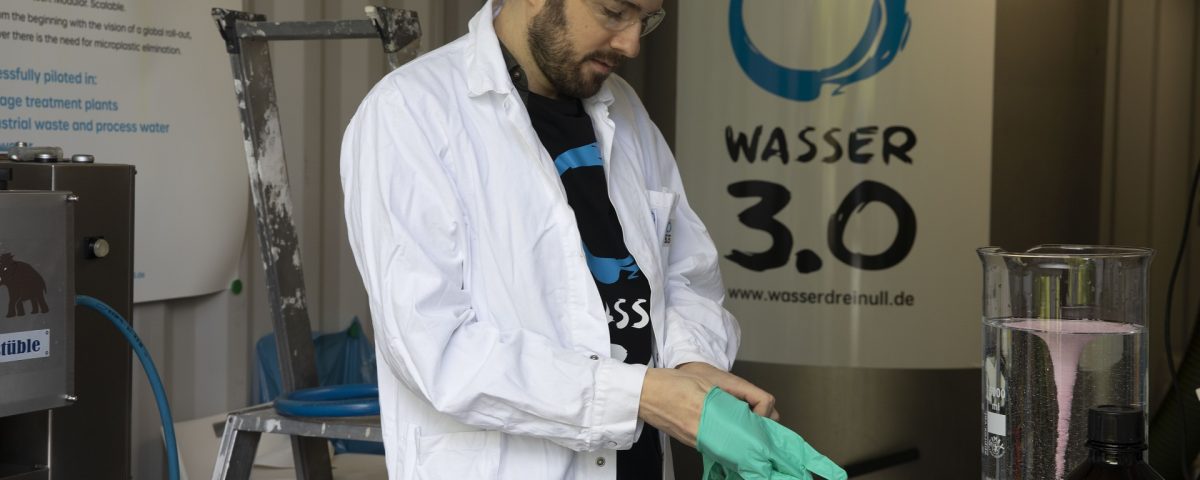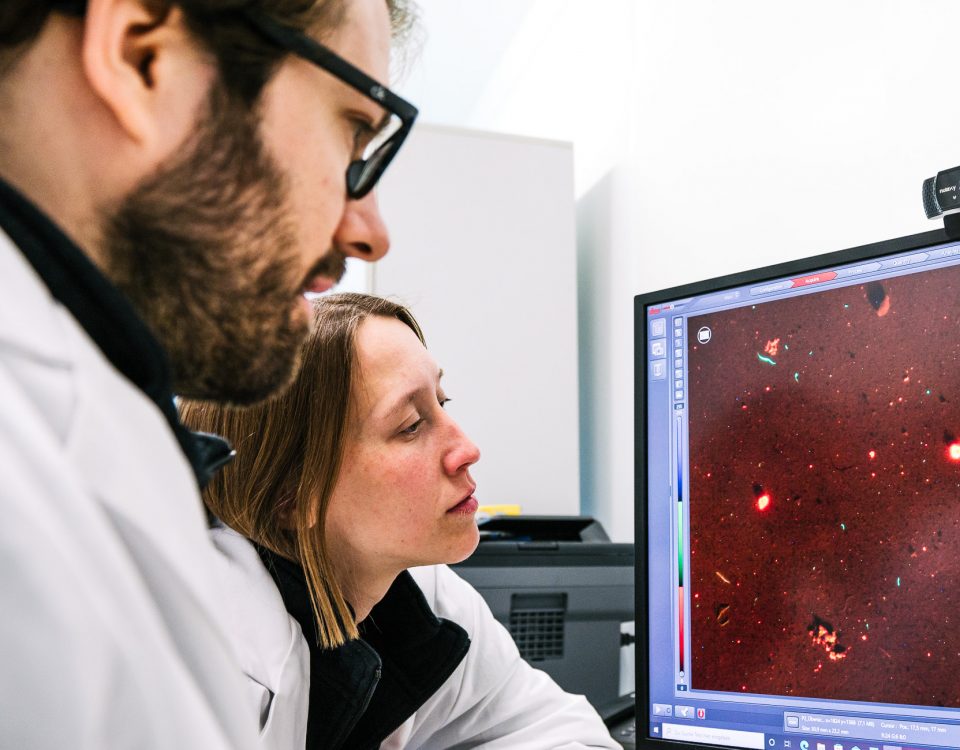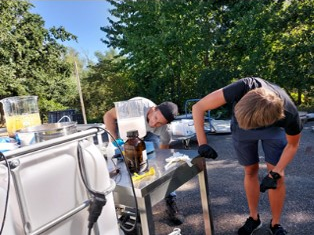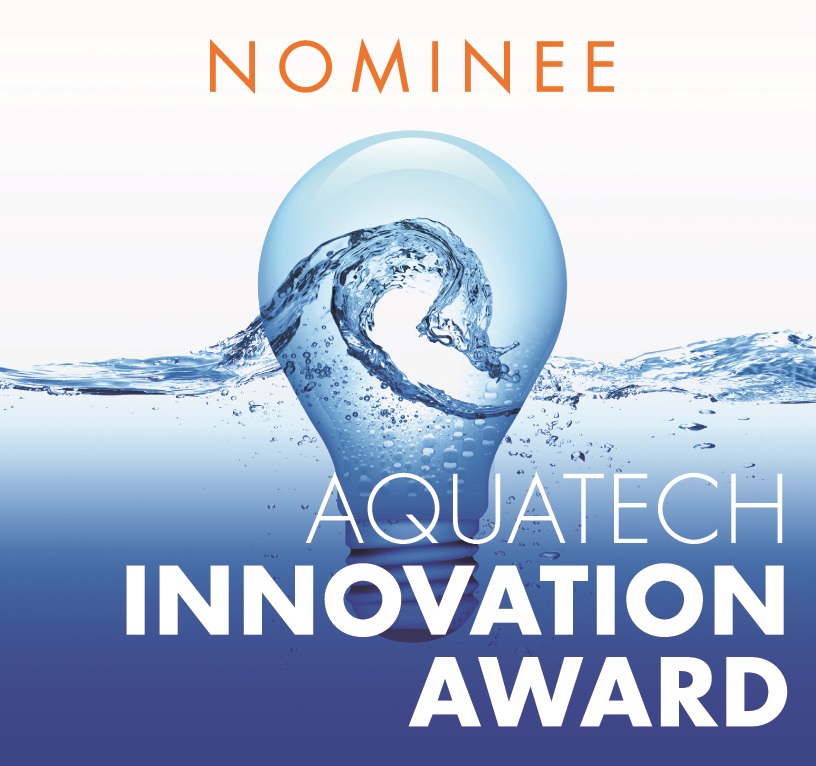
On the road in the Netherlands
22. October 2021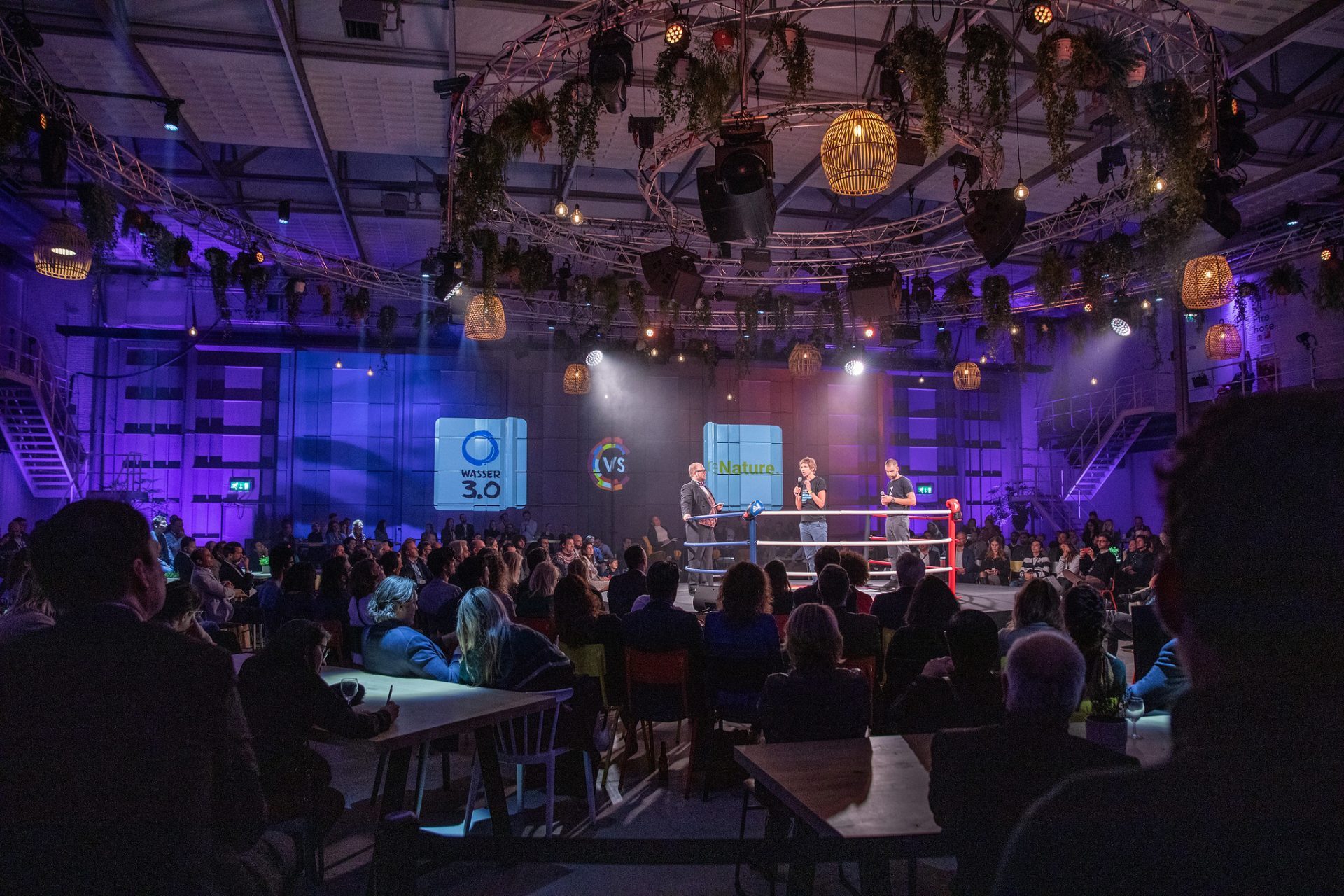
Aquatech Innovation Award & a pitch in a boxing ring
12. November 2021Kicking off our REC-MP project
Thanks to the generous support of the Vector Foundation, we are able to further develop our detection method for microplastics in water. Our new
research project REC-MP
aims to develop arapid test for microplastic detection
in water bodies. Simpler, faster and cheaper is again our motto. Because our basic application research knows only one goal: Impact.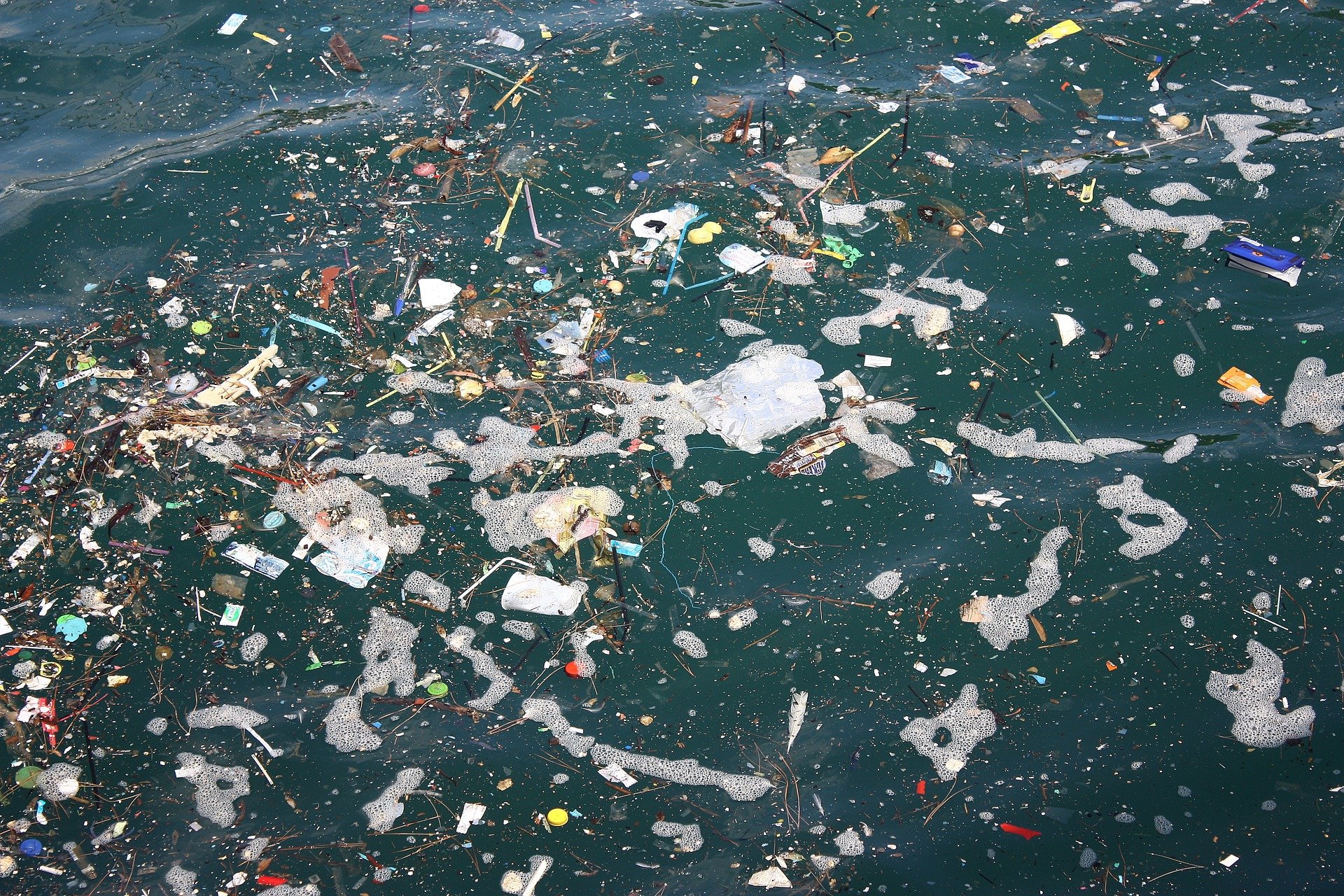
What to know about microplastic detection
There are a number of studies that have identified and quantified microplastics in our waters. There is just one problem: Different sampling and analytical methods have been used, making it nearly impossible to compare results.
In addition, existing detection methods are complex, time-consuming and expensive, limiting their use.
Thus, although microplastics have been and can be detected factually everywhere worldwide, the actual
There are a number of studies that have identified and quantified microplastics in our waters. There is just one problem: Different sampling and analytical methods have been used, making it nearly impossible to compare results.
In addition, existing detection methods are complex, time-consuming and expensive, limiting their use.
Thus, although microplastics have been and can be detected factually everywhere worldwide, the actual
amount of microplastics in our environment
is currently unknown.We have already written a 4-part blog series on the state of the art in microplastic detection, describing the challenges, the consequences of the lack of standardization in data collection to date and our lastest research successes with fluorescent markers.
Research project with high impact potential
Building on our research and development work in microplastic removal from water, we are now developing a rapid test that can detect microplastic pollution in a reproducible, efficient and cost-effective manner.
And there is real potential in this: With the rapid test, we can create a comparable and large-scale database. We get meaningful insights into local microplastic pollution and concrete fields of action. We can identify 'microplastic hotspots', which are places where microplastic concentrations are very high and dangerous, for example for adjacent ecosystems or groundwater resources. But these are also places where we should start removing microplastics from the water as soon as possible in the interests of effective environmental and health protection, and avoid further inputs.
Building on our research and development work in microplastic removal from water, we are now developing a rapid test that can detect microplastic pollution in a reproducible, efficient and cost-effective manner.
And there is real potential in this: With the rapid test, we can create a comparable and large-scale database. We get meaningful insights into local microplastic pollution and concrete fields of action. We can identify 'microplastic hotspots', which are places where microplastic concentrations are very high and dangerous, for example for adjacent ecosystems or groundwater resources. But these are also places where we should start removing microplastics from the water as soon as possible in the interests of effective environmental and health protection, and avoid further inputs.
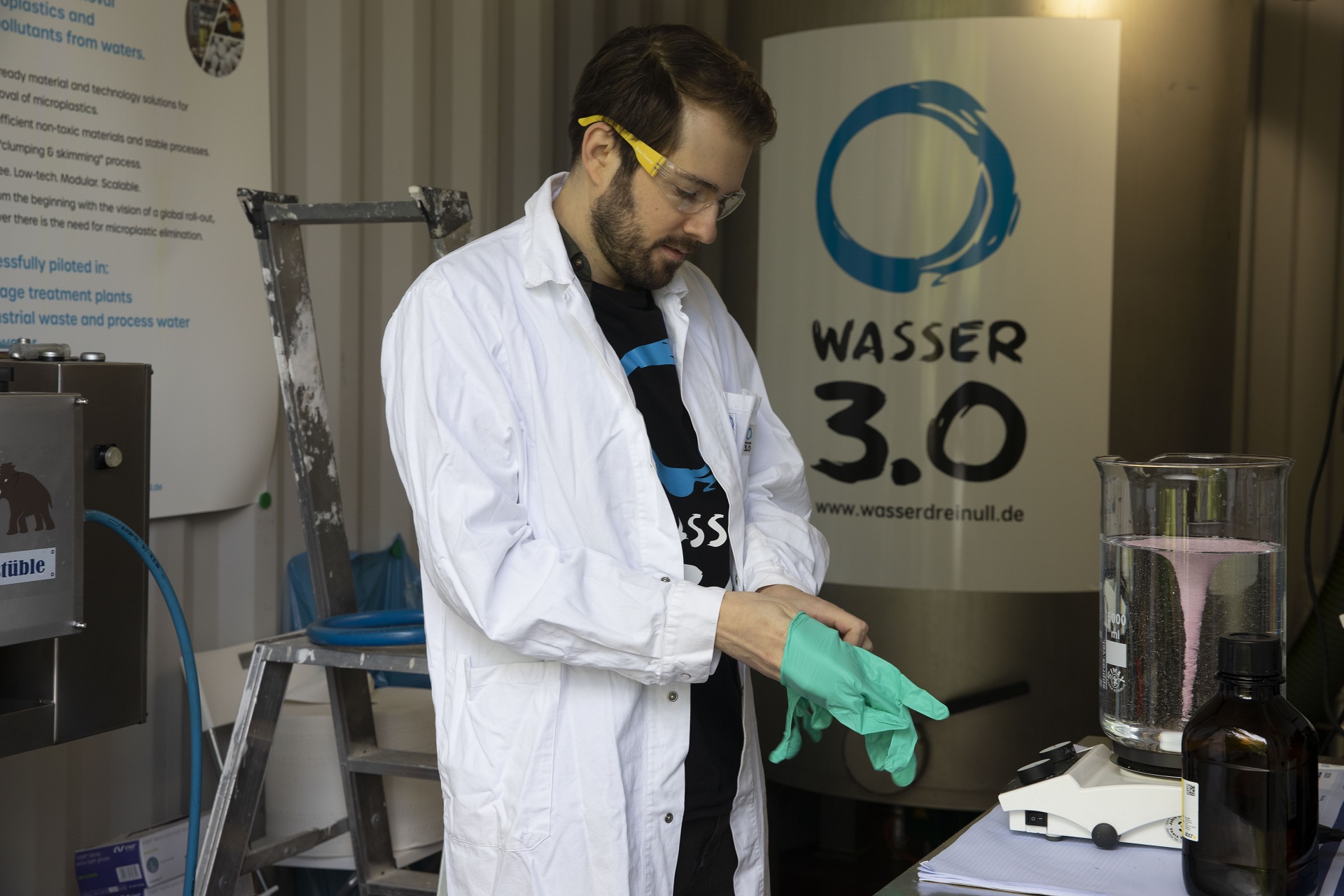
Thinking further
We already have lots of ideas on how to make the rapid test work. Wouldn't it be great to have a
We are working on it...
We already have lots of ideas on how to make the rapid test work. Wouldn't it be great to have a
Global Map of Microplastic Pollution
? With comparable, valid data collected via Citizen Science projects worldwide? Publicly available on an online platform?We are working on it...
Made possible by the Vector Foundation
The Vector Foundation was established in 2011 as a company-affiliated foundation. The foundation owns 60% of the shares in Vector Informatik GmbH and finances its activities from the dividends it receives from this shareholding. The Vector Foundation supports 150 projects with an average of around 8 million euros annually. Since 2011, it has used more than 55 million euros for its charitable work. The Vector Foundation is active in the fields of research, education and social commitment in Baden-Württemberg. Its funding focus is on engineering research projects, STEM education, and combating housing and youth unemployment.
A big thank you for the funding!
The Vector Foundation was established in 2011 as a company-affiliated foundation. The foundation owns 60% of the shares in Vector Informatik GmbH and finances its activities from the dividends it receives from this shareholding. The Vector Foundation supports 150 projects with an average of around 8 million euros annually. Since 2011, it has used more than 55 million euros for its charitable work. The Vector Foundation is active in the fields of research, education and social commitment in Baden-Württemberg. Its funding focus is on engineering research projects, STEM education, and combating housing and youth unemployment.
A big thank you for the funding!

